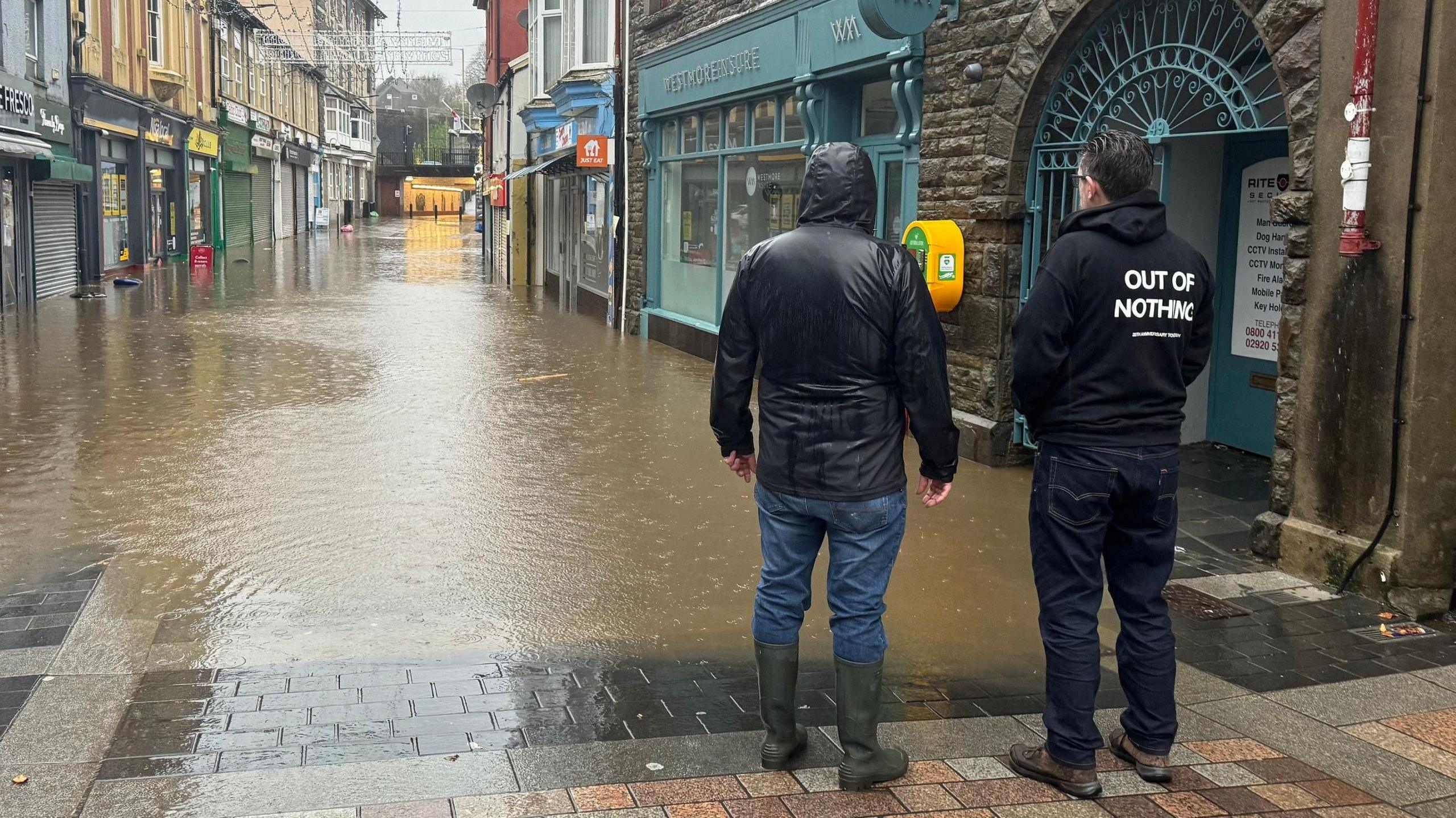Landslide residents want to leave their homes
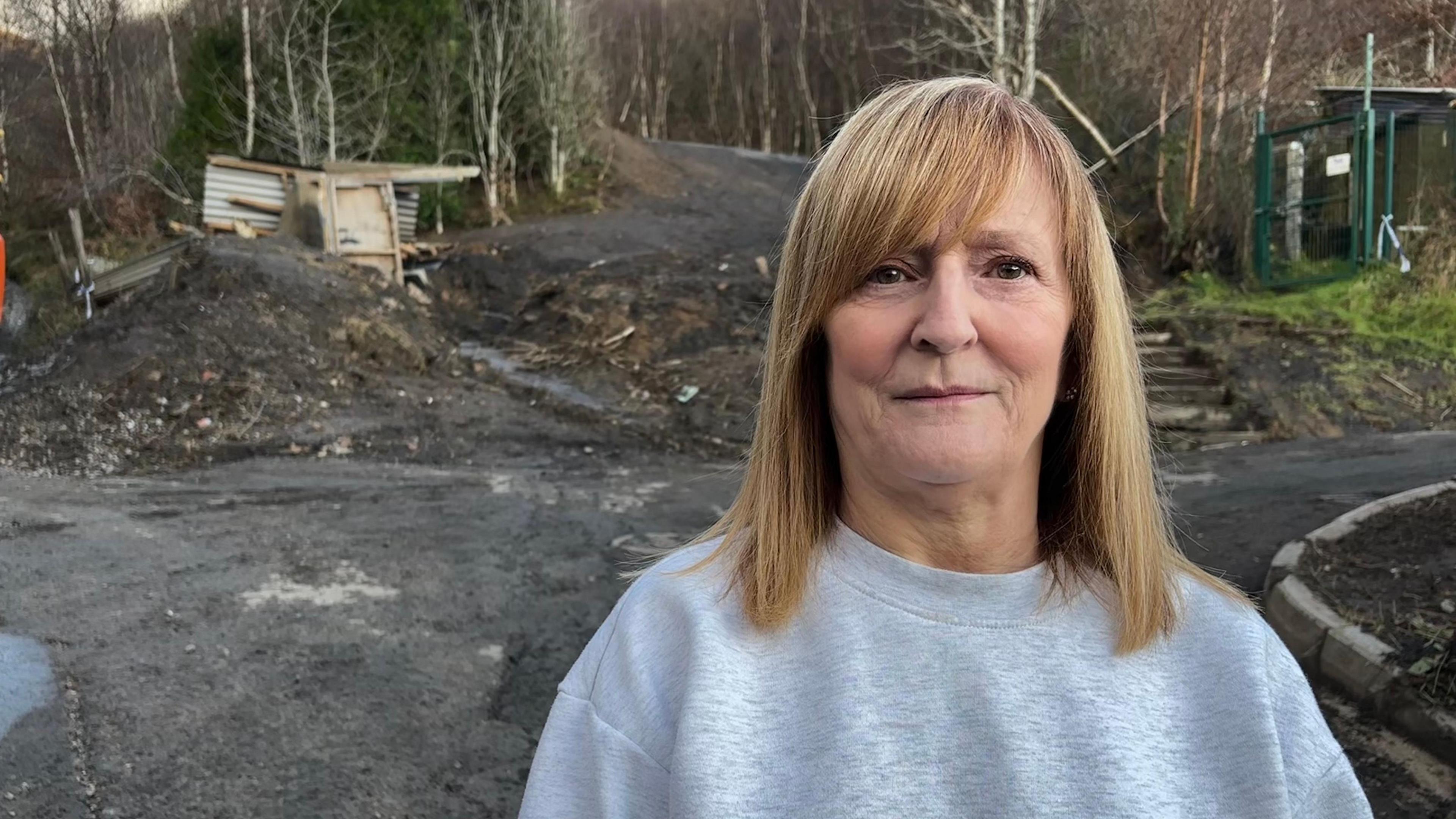
Dianne Morgan's home backs on to a coal tip in Cwmtillery which caused a landslide following heavy rain during Storm Bert in November.
- Published
Residents who saw a coal tip landslide narrowly miss their homes have said they do not want to live there if the risk of another one remains.
Dianne Morgan, who lives directly below the tip in Cwmtillery, Blaenau Gwent, said she would prefer the council to compulsorily buy her home, while others said they wished to move.
Torrential rain during Storm Bert last month forced some people in the former mining village to evacuate after a river of slurry and debris washed down the road.
It comes as the Welsh government sets out new legislation to address safety concerns at hundreds of disused mining tips across the country.
Coal tip activist's guarded welcome for £25m
- Published31 October 2024
New maps reveal 350 old coal tips most at risk
- Published14 November 2023
The team working to stop another Aberfan disaster
- Published15 November 2023
"People here don't feel safe and I don't think we'll be able to sell this home either at the moment. At some point we were going to move from here and downsize but that's not going to happen now," Ms Morgan said.
Ms Morgan added she had sought assurances from the council that no further slips would occur once work has been carried out to make the tip safe.
"Our feeling here as residents of the area is that they should just remove the tip," Ms Morgan said.
Following the incident the council said it had started remedial works to address the immediate issues.
Despite knowledge of the tip's existence, residents said they were never told it had been categorised as a tip with the potential to affect public safety.
Aerial footage shows extent of damage caused by Cwmtillery coal tip slide
Fears over the safety of Wales' old coal tips first resurfaced in 2020 after a landslide above the village of Tylorstown in Rhondda Cynon Taf during Storm Dennis.
A total of 2,573 disused coal tips were identified, with 360 classed as having "the potential to impact public safety" and requiring regular inspection.
A review, commissioned by the Welsh government, found existing laws on tip safety - introduced in the wake of the Aberfan disaster in 1966 - no longer provided "an effective management framework", as they were designed for a time when there was an active coal industry.
Work on a new bill has been under way for several years, with proposed legislation set to be introduced to the Senedd this week.
If passed, it will lead to the establishment of a new organisation called The Disused Tips Authority for Wales which would take responsibility for "the assessment, registration, monitoring and management" of tips.
With many tips now in private ownership, the new authority would have the power to require landowners to carry out repair work where necessary, with the threat of an unlimited fine if they do not comply.
The government said grant funding would be available, with an appeals process too for landowners unable to cover the costs involved themselves.
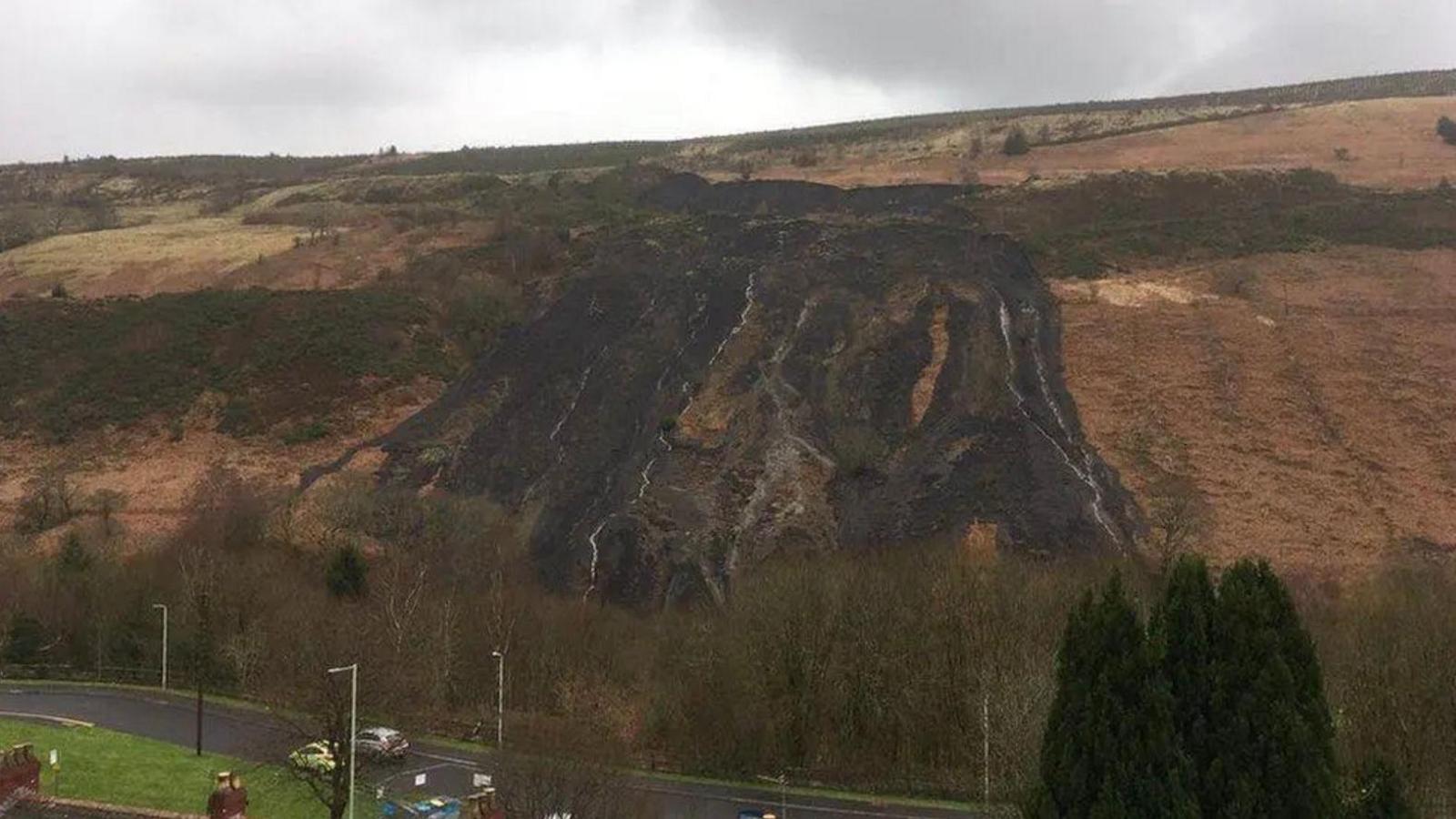
Since this landslide happened at Tylorstown in Rhondda Cynon Taf in 2020, the council has put infrastructure in place to make it safe.
Local authorities are largely responsible for coal tips which are on public land, while some are in the hands of the Mines Remediation Authority, formerly known as the UK Coal Authority.
Robert Sullivan from the organisation said: "Many of these sites were remediated in a period when climate change wasn't really considered and as a result, the Mining Remediation Authority is conducting a review of climate change adaptation of our sites which includes looking at what we can do to better manage these sites during periods of heavy rainfall.
"We're looking at the installation of remote smart monitoring such as rain gauges and we're also looking at what we can do in terms of flood alleviation.
"One of the key factors of tip management is the control of ground water and surface water, so we're trying to alleviate that problem without having created a detrimental impact on people."
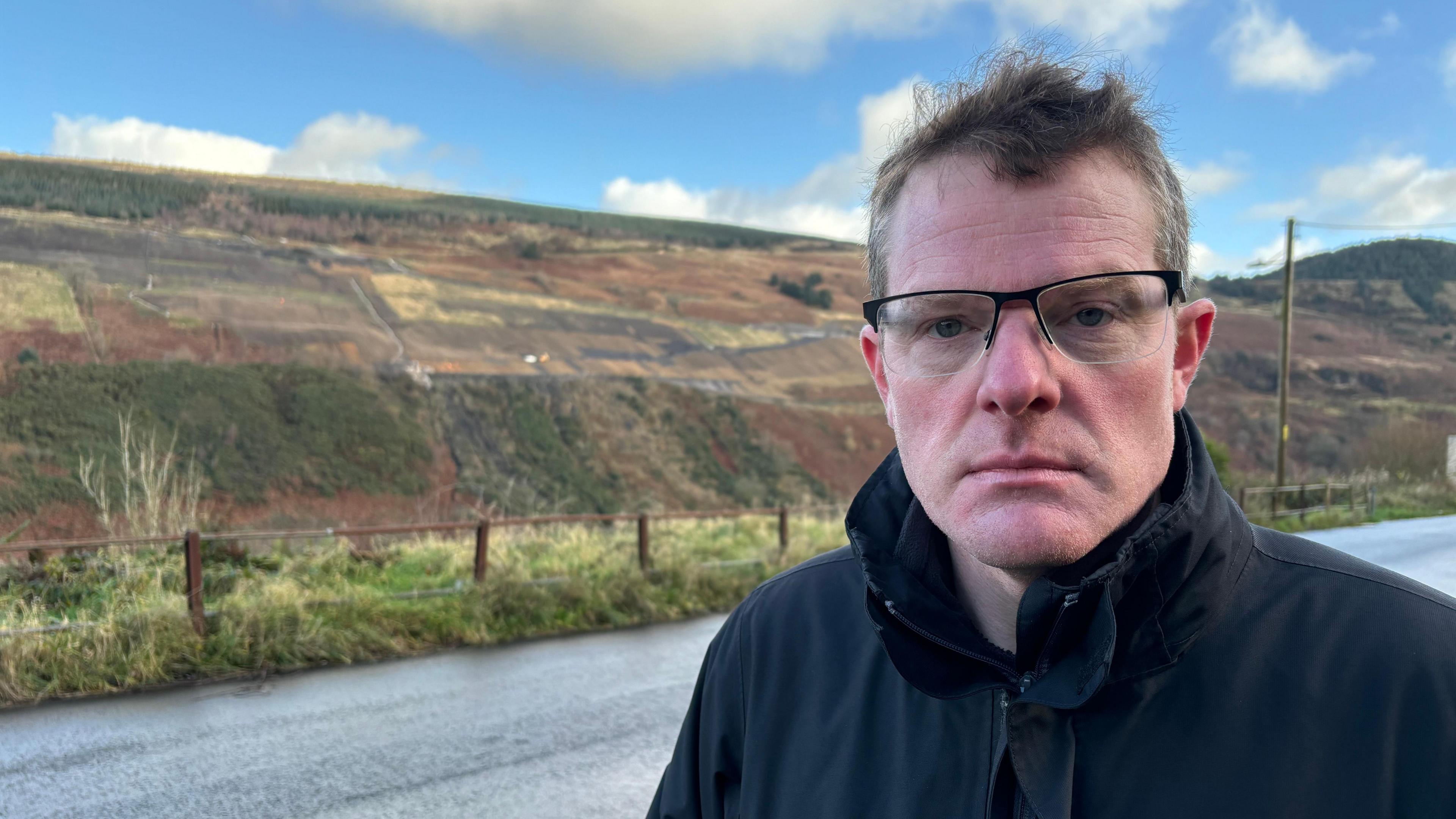
Phil Thomas, who runs a group which campaigns for coal tips to be cleared, says it's vital the responsibility for maintaining tips doesn't fall solely on the public purse
On a visit to Tylorstown to unveil the proposed new law, the Deputy First Minister Huw Irranca-Davies said the recent landslides "illustrate the potential risks and concerns that disused tips present to people living in their shadow".
"This bill is about keeping communities safe and is part of a wider programme of work to improve the safety of disused coal tips," he said.
Plaid Cymru said legislation alone was "not enough" and called on the UK government to pay "the full £600m estimate cost of remediating coal tips over the next decade".
The Welsh Conservatives welcomed the proposed bill and said they would be "looking to ensure that more is done to stop damage from scramblers and 4x4 offroad vehicles, communities are involved in the decision-making process of making safe coal tips and that biodiversity is protected".
Analysis by Steffan Messenger, environment correspondent:
If you follow the news in Wales you'll have probably seen the video many times.
Shaky footage, hastily filmed on a phone of a hillside above the village of Tylorstown in Rhondda Cynon Taf (RCT) giving way.
"Wow" the man behind the camera gasps - echoing the sentiments of a nation.
The landslide in 2020 reopened a painful scar on the Welsh psyche, and kickstarted a process - both practical and political - to shore up the country's old coal tips.
It's hard to believe how little was known then about exactly how many there were, where they were located, who owned the land and what condition they were in.
There's been a major effort in recent years to plug those knowledge gaps and today's announcement brings legal reforms and a new organisation to manage the situation in future.
But questions remain over how to foot the bill for a long-term fix, with the leader of RCT council telling BBC News in October as much as £800m could be needed over the coming decades.
Another discussion point is around the involvement of private firms offering to fund remediation work at certain tips by selling the coal they dig out as they go.
- Published25 November 2024
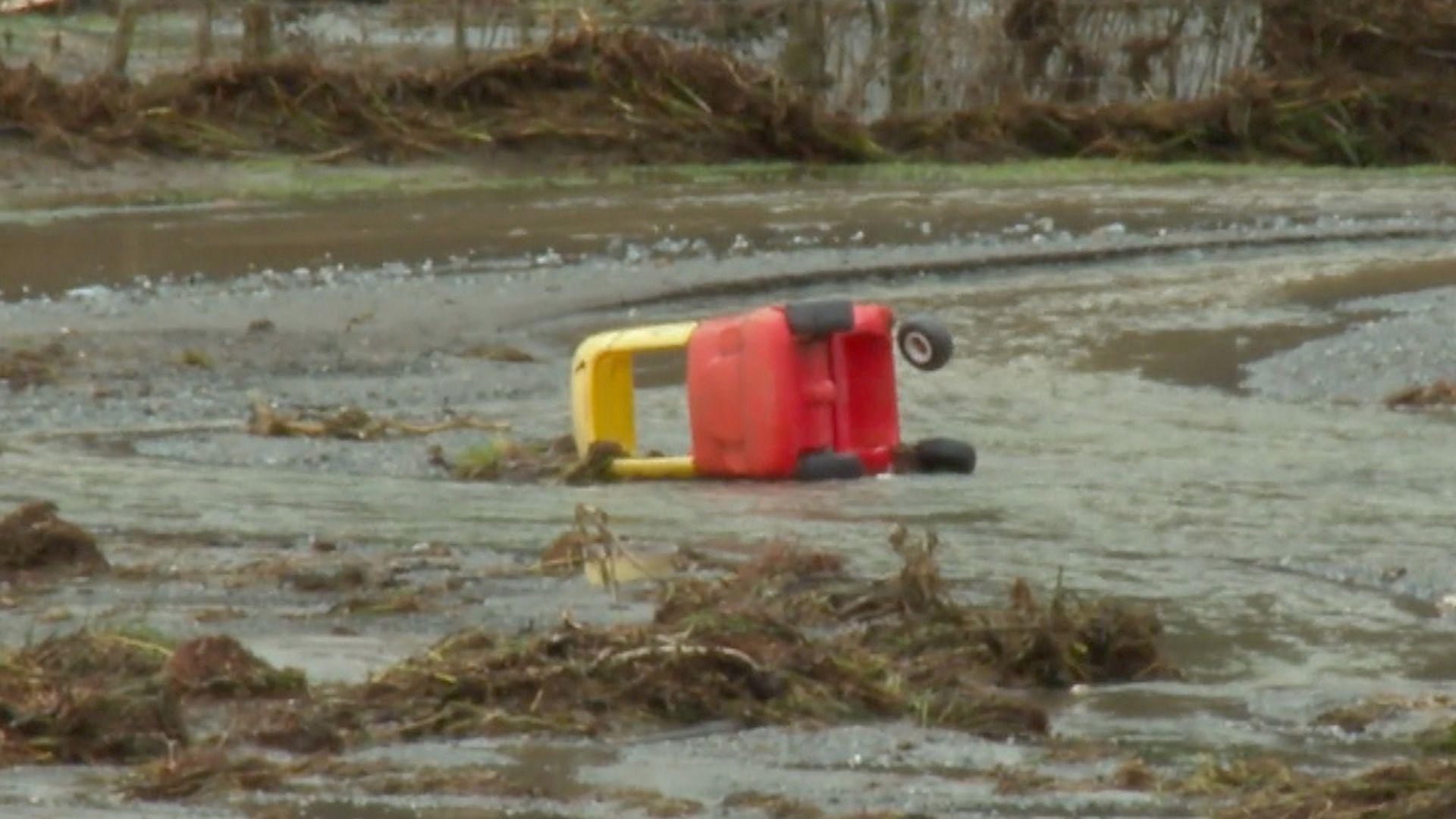
- Published25 November 2024
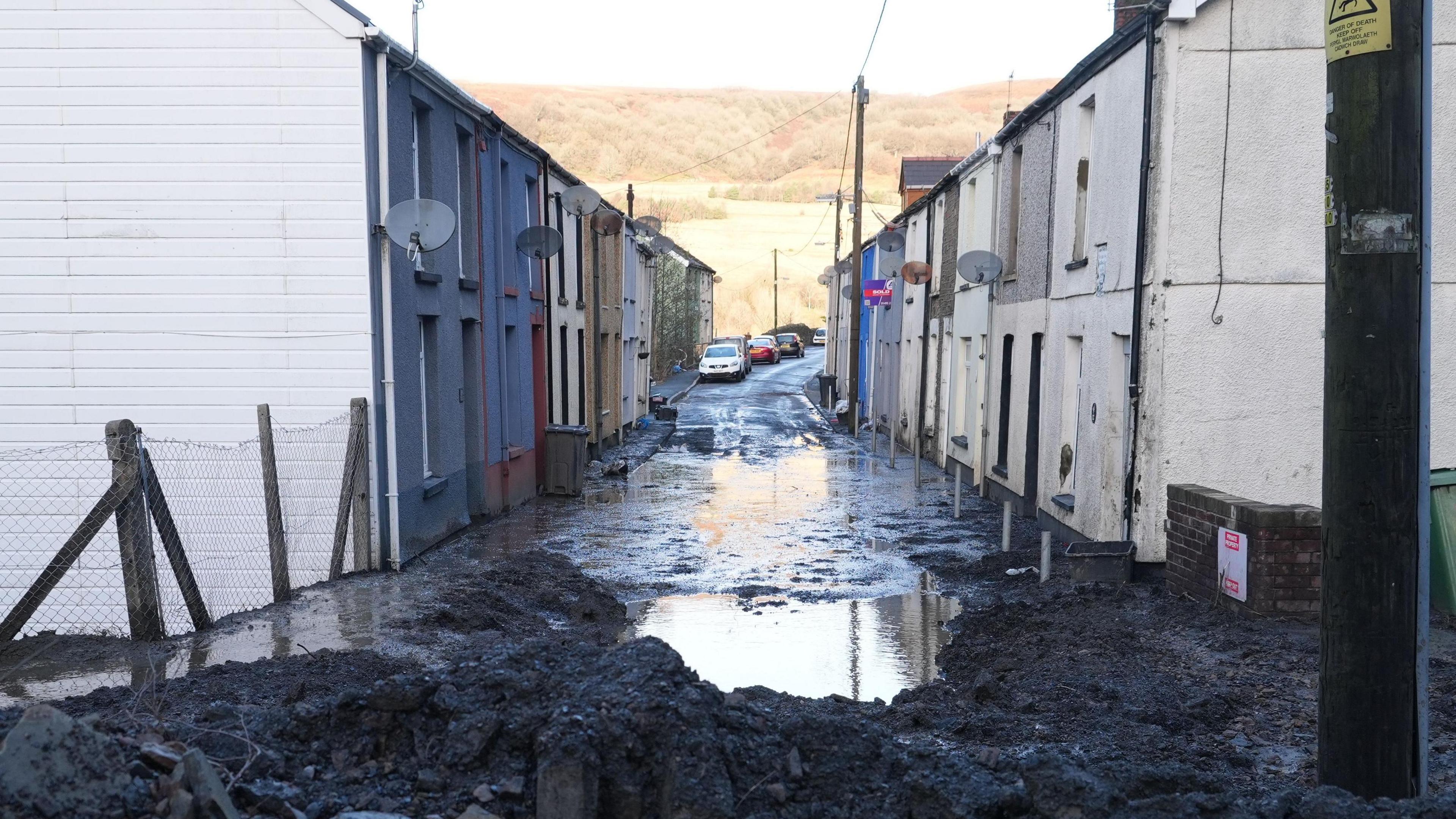
- Published25 November 2024
